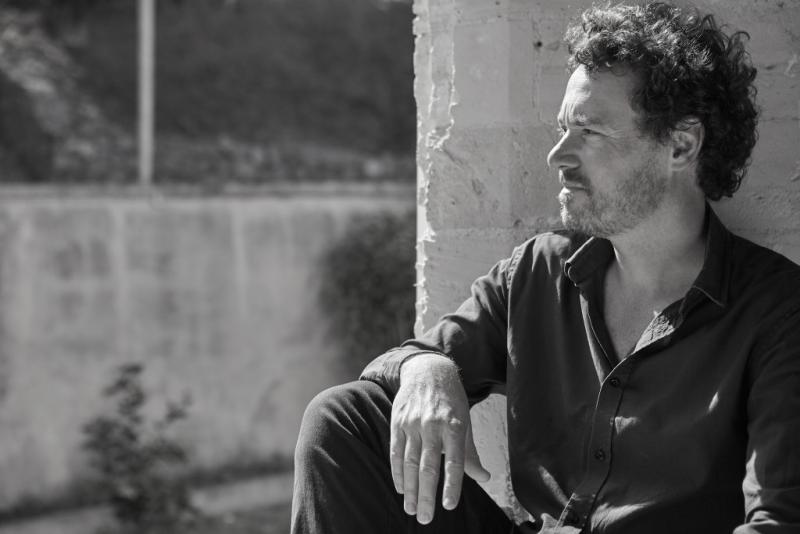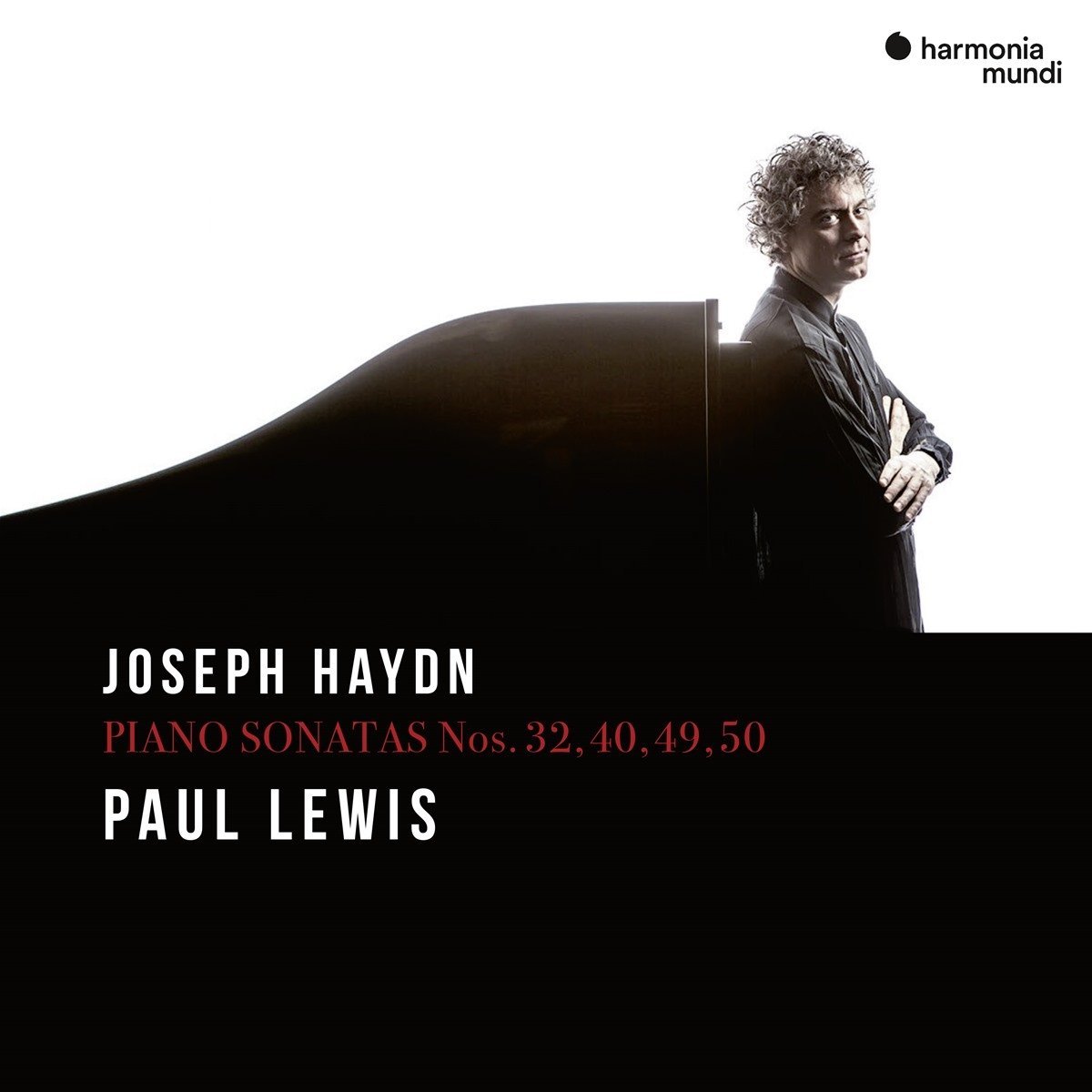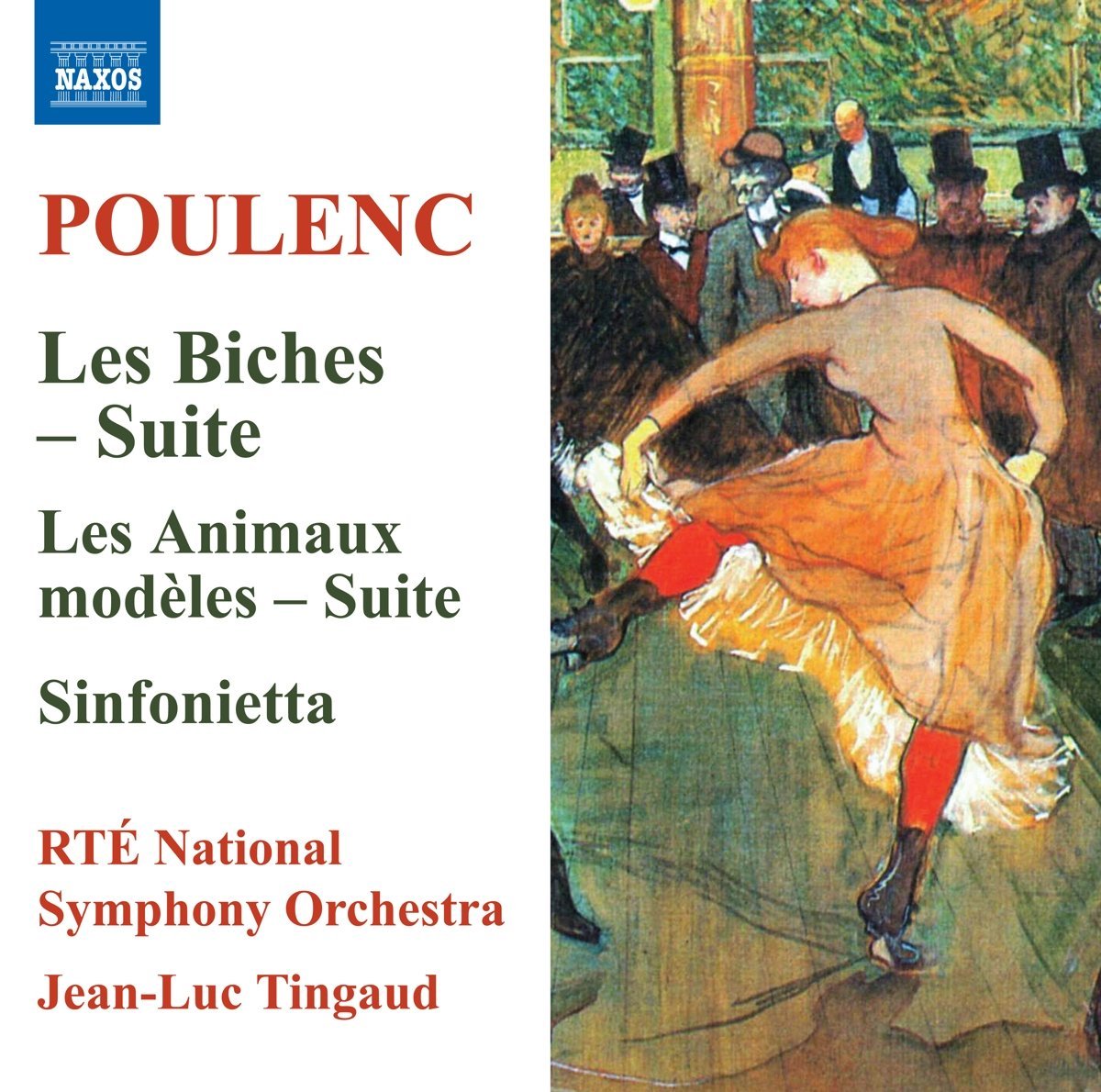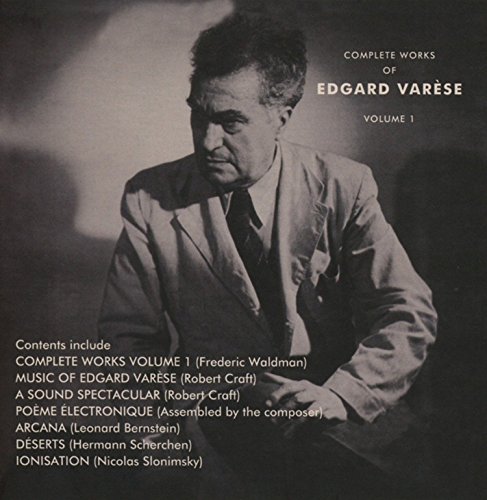Classical CDs Weekly: Haydn, Poulenc, Varèse | reviews, news & interviews
Classical CDs Weekly: Haydn, Poulenc, Varèse
Classical CDs Weekly: Haydn, Poulenc, Varèse
Classical piano sonatas and French orchestral music, plus the modernism that inspired Frank Zappa

 Haydn: Piano Sonatas 32, 40, 49, 50 Paul Lewis (Harmonia Mundi)
Haydn: Piano Sonatas 32, 40, 49, 50 Paul Lewis (Harmonia Mundi)
One of the many good things about Haydn's piano sonatas is their brevity. You can easily squeeze four or five on to a single disc, though the ones chosen by Paul Lewis for his debut Haydn disc all feel like deceptively big pieces. Lewis takes a commendably non-interventionist approach: rhythms are nicely sprung and his clear, crisp articulation is a joy. He doesn't over-accentuate the quirkiness: Haydn doesn't need any extra help. Take the opening to the Sonata in C, its fragmentary, staccato major triad quickly blossoming into something much richer and deeper. We never lose sight of that opening gesture, and the unexpected harmonic twists which ensue sound disconcertingly modern. Lewis’s rapid runs are immaculate, and the sonata’s cheeky payoff is a delight. Smallest is a two-movement Sonata in G, music of spare elegance.
There's a stern B minor work, the severity of its first theme undercut by Lewis’s wittily-clipped bassline, its final seconds an exasperated flurry of semiquavers. There are moments of calm serenity: No. 49 in E flat has a sublime slow movement, as does the C major work, both marvellous in Lewis’s hands. An enjoyable disc of some seriously under-appreciated music. Harmonia Mundi’s clear, close sound suits the performances perfectly. Lewis's facial expression on the sleeve is a tad disconcerting: he looks as if he's about to tackle Schoenberg instead of Haydn.
 Poulenc: Les Biches, Les Animaux modèles, Sinfonietta RTÉ National Symphony Orchestra/Jean-Luc Tingaud (Naxos)
Poulenc: Les Biches, Les Animaux modèles, Sinfonietta RTÉ National Symphony Orchestra/Jean-Luc Tingaud (Naxos)
Crikey, this is good: the zingiest, most pungent performance imaginable of the suite from Poulenc's ballet Les Biches. You notice all sorts of stuff you won't hear clearly anywhere else. Like the flutter-tonguing flutes in the “Adagietto”, or the punchy brass offbeats in the “Rag-Mazurka”. I've never heard this music sound so joyful, so gleefully irreverent, with Jean-Luc Tingaud’s Dublin orchestra playing their collective chaussettes off. Speeds are daringly fast, but the gamble pays off. How can anyone not love this score? Great too to have the lovely, underrated Sinfonietta, commissioned by the BBC and first performed in 1948. In what’s as close as we'll get to having a Poulenc symphony, Tingaud again hits the spot: sonorities are lush and lean by turns, with superb wind solos. There’s a swooning string theme about 80 seconds into the first movement which had me welling up, and it's fun spotting the nods to the composer's Organ Concerto as well as allusions to Tchaikovsky and Stravinsky.
The ballet Les Animaux modèles was composed during the Nazi occupation of France, Poulenc’s adaptation of fables by Jean de la Fontaine including a subversive quote from a popular anti-German song. Darker and more emotionally involving than Les Biches, it's an exquisite score. Tingaud balances the different wind colours at the opening to beautiful effect, and how good to hear the horns chuntering away behind the string theme at the start of “Le lion amoureux”. The ballet's close is remarkable, Poulenc's blazing major chords abruptly fading away as if a candle’s been snuffed out. Few discs this year have cheered me up so much as this one. It’s handsomely recorded – a sensational disc. Plus, this is a Naxos release, so it costs a (relative) pittance.
 Varèse: Complete Works (Él Records)
Varèse: Complete Works (Él Records)
Edgard Varèse’s published output is famously small, but all those, er, popular Varèse classics are included in this attractive budget box. It contains excellent transfers of some pioneering recordings, several of which inspired the teenage Frank Zappa, who’d read in the early 1950s about an LP containing “a weird jumble of drums and other unpleasant noise”. Zappa was immediately hooked, eventually finding Varèse in the New York telephone directory and calling him to proffer thanks (“I really dig your music.”). Fans will already possess Riccardo Chailly’s spectacular Decca collection, to which this package is an intriguing supplement. Several of the performances audibly stretch players to the limit, though the sense of excitement, of discovery, makes them worth hearing. A 1933 premiere taping of Ionisation, supervised by Varèse, is a find. The percussionists of the New York Philharmonic couldn't cope with the rhythms, so conductor Nicolas Slominsky called on a bevy of composer colleagues to plug the gaps: Paul Creston on anvil. Henry Cowell on piano. William Schuman on lion’s roar. Several moments are comically approximate, and it's fascinating to compare it to three (yes, three!) later recordings also included.
Most accurate is the one conducted by Robert Craft, whose performances fill two discs. They still sound impressive: Craft was a slippery figure – the booklet’s quoted conversation between him and Stravinsky, discussing Varèse was largely a fabrication – but he was a superb evangelist for new music. Déserts, taped in 1962, is thrilling, Craft’s orchestral players matching the composer's unsettling electronic "interpolations" in terms of sonic strangeness. This work retains its power to surprise. As does the tape-only Poéme électronique, originally heard through 400 speakers in a Le Corbusier pavilion at the 1958 Brussels Exposition. A live stereo recording of Bernstein and the NYPO tackling Arcana in the same year sounds incredibly vivid. Snap this up forthwith – an inexpensive introduction to one of 20th century music’s stranger characters.
Explore topics
Share this article
The future of Arts Journalism
You can stop theartsdesk.com closing!
We urgently need financing to survive. Our fundraising drive has thus far raised £49,000 but we need to reach £100,000 or we will be forced to close. Please contribute here: https://gofund.me/c3f6033d
And if you can forward this information to anyone who might assist, we’d be grateful.

Subscribe to theartsdesk.com
Thank you for continuing to read our work on theartsdesk.com. For unlimited access to every article in its entirety, including our archive of more than 15,000 pieces, we're asking for £5 per month or £40 per year. We feel it's a very good deal, and hope you do too.
To take a subscription now simply click here.
And if you're looking for that extra gift for a friend or family member, why not treat them to a theartsdesk.com gift subscription?
more Classical music
 Two-Piano Gala, Kings Place review - shining constellations
London Piano Festival curators and illustrious friends entertain and enlighten
Two-Piano Gala, Kings Place review - shining constellations
London Piano Festival curators and illustrious friends entertain and enlighten
 Echo Vocal Ensemble, Latto, Union Chapel review - eclectic choral programme garlanded with dance
Beautiful singing at the heart of an imaginative and stylistically varied concert
Echo Vocal Ensemble, Latto, Union Chapel review - eclectic choral programme garlanded with dance
Beautiful singing at the heart of an imaginative and stylistically varied concert
 Scott, Irish Baroque Orchestra, Whelan, RIAM, Dublin review - towards a Mozart masterpiece
Characteristic joy and enlightenment from this team, but a valveless horn brings problems
Scott, Irish Baroque Orchestra, Whelan, RIAM, Dublin review - towards a Mozart masterpiece
Characteristic joy and enlightenment from this team, but a valveless horn brings problems
 Classical CDs: Voice flutes, flugelhorns and froth
Baroque sonatas, English orchestral music and an emotionally-charged vocal recital
Classical CDs: Voice flutes, flugelhorns and froth
Baroque sonatas, English orchestral music and an emotionally-charged vocal recital
 Kanneh-Mason, Britten Sinfonia, Shave, Milton Court - a grin and a big beaming smile
A pair of striking contemporary pieces alongside two old favourites
Kanneh-Mason, Britten Sinfonia, Shave, Milton Court - a grin and a big beaming smile
A pair of striking contemporary pieces alongside two old favourites
 theartsdesk at the New Ross Piano Festival - Finghin Collins’ musical rainbow
From revelatory Bach played with astounding maturity by a 22 year old to four-hand jazz
theartsdesk at the New Ross Piano Festival - Finghin Collins’ musical rainbow
From revelatory Bach played with astounding maturity by a 22 year old to four-hand jazz
 First Person: Manchester Camerata's Head of Artistic Planning Clara Marshall Cawley on questioning the status quo
Five days of free events with all sorts of audiences around Manchester starts tomorrow
First Person: Manchester Camerata's Head of Artistic Planning Clara Marshall Cawley on questioning the status quo
Five days of free events with all sorts of audiences around Manchester starts tomorrow
 Goldscheider, Brother Tree Sound, Kings Place review - music of hope from a young composer
Unusual combination of horn, strings and electronics makes for some intriguing listening
Goldscheider, Brother Tree Sound, Kings Place review - music of hope from a young composer
Unusual combination of horn, strings and electronics makes for some intriguing listening
 theartsdesk Q&A: composer Donghoon Shin on his new concerto for pianist Seong-Jin Cho
Classical music makes its debut at London's K-Music Festival
theartsdesk Q&A: composer Donghoon Shin on his new concerto for pianist Seong-Jin Cho
Classical music makes its debut at London's K-Music Festival
 Helleur-Simcock, Hallé, Wong, Bridgewater Hall, Manchester review - moving lyricism in Elgar’s concerto
Season opener brings lyrical beauty, crisp confidence and a proper Romantic wallow
Helleur-Simcock, Hallé, Wong, Bridgewater Hall, Manchester review - moving lyricism in Elgar’s concerto
Season opener brings lyrical beauty, crisp confidence and a proper Romantic wallow

Add comment